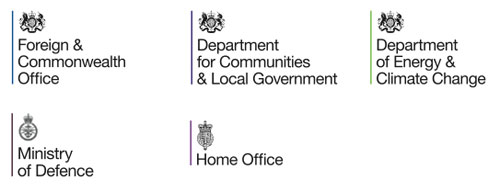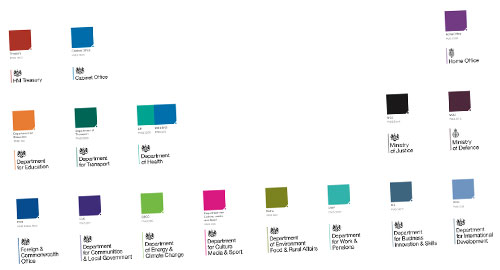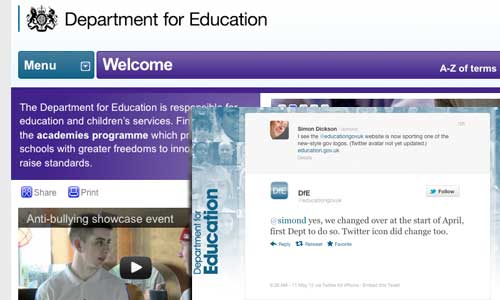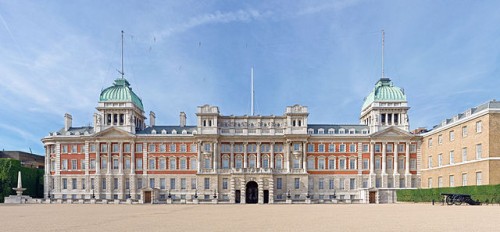You’ll remember the furore, just about a month ago, when London mayor Boris Johnson renamed his @mayoroflondon Twitter account @BorisJohnson – and in doing so, turned what had ostensibly (?) been an official account owned by the Mayor’s office into a campaigning platform for his re-election.
The decision to stop tweeting as Mayor was, unquestionably, correct. But by simply renaming the account, his (party political) campaign team had suddenly acquired an opt-in contact list of a quarter of a million people. Understandably, there was quite a backlash – and by bedtime, the account had been renamed @mayoroflondon, and mothballed.
Having spent almost my entire career walking that tightrope between ‘party political’ and ‘elected official’ communication – whether it be as a civil servant myself, or these days, running websites for MPs / ministers / candidates – I saw this as a fascinating case study. The @mayoroflondon account had been quoted on official Greater London Assembly communications for several years. But who actually owned it: Boris himself, or the office of Mayor? Had anyone ever asked that question?
So I lodged an FOI request. And they’ve just sent me their response.
I asked:
Can you please release copies of any correspondence to/from the Mayor’s private office, the Mayor’s press office or the GLA Public Liaison Unit relating to:
- the decision to rename the account in 2009, adopting the name of the office of Mayor, with no indication of any direct personal attachment to the current incumbent;
- the formal ownership of the account: whether it was considered Mr Johnson’s personal property, or whether it belonged to the office of Mayor;
- requests to use the account for official purposes;
- the decision to include references to the MayorOfLondon Twitter account in press releases and other official communications;
- Mr Johnson’s move today (20 March) to rename the account and change its purpose into that of a platform for his re-election campaign, including references to the BackBoris2012.com website where there had previously been links to london.gov.uk
They have only been able to supply material in response to my final point. Which means, one would naturally assume, that the matter had never been raised beforehand. An regrettable oversight perhaps.
And so to 20 March 2012.
At 4.22pm, a good few hours after things had kicked off, head of media Samantha Hart sent an email to press office colleagues:
As you’re probably aware now, the @mayoroflondon twitter account has now been renamed Boris Johnson and is being run by the campaign. If you have any links to @mayoroflondon on your email signature or anywhere else, please can remove it asap?
In other words: City Hall staff hadn’t been forewarned. And the account was now ‘being run by the campaign’ – where, one can reasonably infer, it wasn’t before. Half an hour later, Sam sends round a ‘line to take’, to help press officers deal with any enquiries.
Boris Johnson has decided it would not be appropriate during the pre-election period for him to be tweeting as Mayor of London. He has therefore made it clear to all his followers that he will now be tweeting under his own name outside of City Hall. Anyone who no longer wishes to follow his tweets will be reminded repeatedly that they can unsubscribe with one click of the mouse. @mayoroflondon can be revived by whoever is elected on May 3.
A resolution of sorts, then. The @mayoroflondon account is thus formally deemed to be the property of ‘whoever is elected’: meaning this won’t happen again next time. And a couple of hours later, at 6.25pm came further confirmation from Guto Harri – the former BBC journalist, now Boris’s Director of External Affairs:
The MayorOfLondon twitter feed has been mothballed until the 5th of May. Boris will update his long-standing followers about his non-campaigning activities under the a new feed called @Boris Johnson (…) The @MayorOfLondon feed can be revived on May 5th by whoever wins the election.
… although by midnight, the plan had changed again. The @BorisJohnson account too was mothballed, before a single tweet was sent; with all party-political tweeting through @backboris2012.
So, what do we learn from this silly little affair?
Ministers, Mayors and other elected representatives are multi-dimensional beings. They have an official status. They probably attained that official status by winning an election, on behalf of a political party. And they are (almost certainly) human beings too, with interests and relationships outside politics.
If we insist on maintaining a separation between all three dimensions – and there’s an argument that we should drop the pretence, as referenced by Jon Worth’s excellent blog post – then the Rules of Engagement for any ‘personal’ communication channel needs to be made clear. If you’re a social media manager, or Head of Digital Engagement, that’s your job. You need to lay down some ground rules on behalf of any ‘official’ communications channels… and see that they are enforced. Ask any difficult questions now, before it becomes an issue later.
Except – it had already been an issue.
Seeing Sam Hart’s request that all links to @mayoroflondon be removed, I naturally had to search the london.gov.uk website to see if that had happened. The answer? – yes and no. Certainly there aren’t many references to the account on london.gov.uk any more. But that made it all the easier for me to find this document from October 2009, relating to a complaint made against Mr Johnson by one Graham Parks.
He had complained that a tweet from the @mayoroflondon account on 30 September 2009 had apparently welcomed The Sun newspaper’s decision to back the Conservatives at the forthcoming general election. The matter went to the Assessment Sub-Committee of the GLA’s Standards Committee, who ruled:
it was clear that (the tweet) was written by or on behalf of the Mayor of London, as the hyperlink to the twitter account was found on the Mayor of London page on the GLA website.
In other words, the Sub-Committee had already, in effect, ruled that the @mayoroflondon account – by quoting a london.gov.uk URL – had declared itself to be the property of City Hall. They unanimously concluded:
Having regard to all the circumstances, the Assessment Sub-Committee concluded that, by writing in that manner, the Mayor of London could be seen to have breached paragraph 6(b) (ii) of the Authority’s Code of Conduct, as it appeared on the evidence presented that the Mayor of London was using GLA resources in seeking to affect party political support.
Having regards to all the facts and circumstances, the Assessment Sub-Committee considered that it was appropriate and proportionate for it to take a decision of “other action”, requiring the GLA’s Monitoring Officer to raise this with Mr Johnson, the Mayor of London, and give guidance to him about the use by him or his office of the Mayor of London twitter account.
In other words, the matter had been discussed: there was no oversight, and no grey area. The GLA had already asserted its ownership of the account. And Boris had already been sanctioned for abusing it.
Make of that what you will. And if you’re a Londoner, remember to cast your vote on 3 May.





